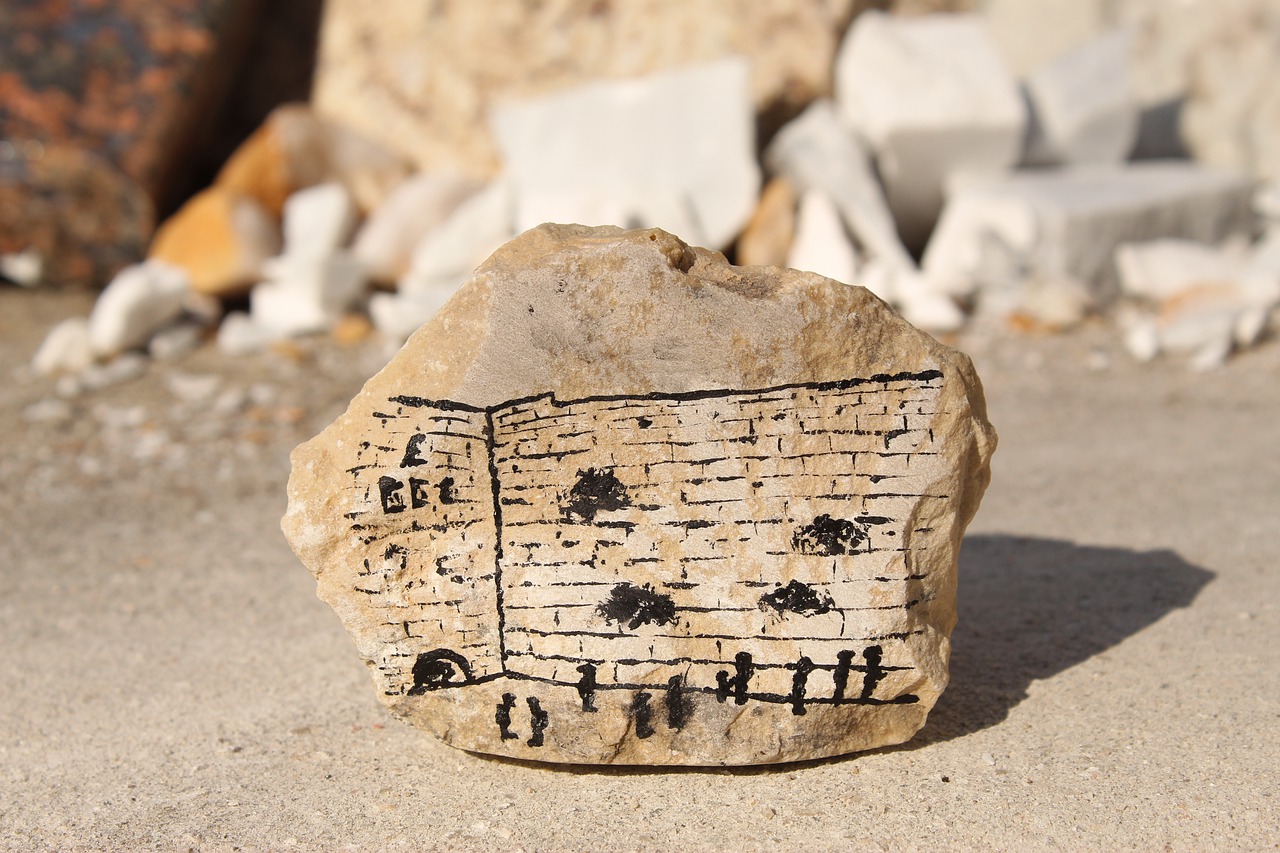Home » Wisdom
Category Archives: Wisdom
Generation ET [End Times]
“Now learn this lesson from the fig tree. As soon as its twigs get tender and its leaves come out, you know that summer is near. Even so, when you see all these things, you know that it is near, right at the door. I tell you the truth, this generation will certainly not pass away until all these things have happened.” Matthew 24:32-34
 This word picture of the fig tree heralding summer would have been very effective throughout much of world history. People were outdoors interacting with the Creation daily, not as a matter of recreation, but as a matter life.
This word picture of the fig tree heralding summer would have been very effective throughout much of world history. People were outdoors interacting with the Creation daily, not as a matter of recreation, but as a matter life.
The wise person learned to observe all of the seasonal details for many reasons. And one of these was that they served as a calendar. Each day, a person knew where they were in the year by what they experienced in the Creation.
And, to those who take the time to know and pay attention, the signs of Matthew 24–false Christs, wars, rumors of wars, famine, earthquakes, persecution, believers leaving the faith, increasing wickedness, the gospel spreading across the whole earth–will help us to gauge where we are in the end times. They will give us an idea of how near we are to Jesus’s coming [James 5:9]. Not that we can know the exact day or hour [Matthew 24:36-44; 1 Thessalonians 5:1-2; 2 Peter 3:10; Revelation 3:3], but all these things should be a sign to have our hearts ready for His return [Matthew 25:1-13]. Just as they should spur us to bring a saving knowledge of Jesus Christ to others.
But what about Jesus’s comment that, this generation will certainly not pass away until all these things have happened. Is that a Biblical error? Certainly, the generation of people in which he lived have all passed away even though these prophecies have not all been fulfilled–several events have happened and others are now unfolding, but not all–and obviously Jesus has not yet returned either.
Let’s look at the Greek. The word genea translated as generation here, implies an age. And the disciples have asked about the synteleais of the aionos [Matthew 24:3]. Their phrase is translated as the end of the age. But their Greek phrase also implies either the end of the world OR the consummation or completion of the Messianic period. In direct response to this, Jesus gives both near and distant future details leading up to the telos the principal end, the main event or issue that they need to be concerned with [Matthew 24:6 & 14].
Remember, they weren’t expecting God’s actual Son to be their Messiah. They were expecting a temporary Messiah–like a Moses–to change their temporary situation under Roman rule.
So, they’re asking Jesus to put a calendar definition on their aionos from which we get eon–an indefinite and very long period of time. But by using the word genea, Jesus is altogether redefining their understanding of the end times. The genea, the age of the end of all things will not pass away–it will not be completed–until everything has happened exactly as I have described it to you. This exceeds your view of a Messianic aionos, which involves me ushering in the end right now in your lifetime. The truth is so much bigger than that.
Do you know the signs of the end? Have you seen them? Is God working to redefine your understanding in these things?
KCS
People or Things?
“Let no one on the roof of his house go down to take anything out of the house. Let no one in the field go back to get his cloak. How dreadful it will be in those days for pregnant women and nursing mothers!” Matthew 24:17-19
 Notice that Jesus tells the disciples that when the end time abomination comes, flea to the safety of the mountains–just as they would when Rome destroyed the temple. No one should think to their possessions. Let your treasures be in heaven alone [Matthew 6:19-21]. Seek to escape with only your life. For, if you try to save your possessions, you may do so at the cost of your life [Matthew 16:25].
Notice that Jesus tells the disciples that when the end time abomination comes, flea to the safety of the mountains–just as they would when Rome destroyed the temple. No one should think to their possessions. Let your treasures be in heaven alone [Matthew 6:19-21]. Seek to escape with only your life. For, if you try to save your possessions, you may do so at the cost of your life [Matthew 16:25].
Jesus notes that it will be especially difficult for pregnant women and nursing mothers. This is because they think not just of themselves, but of their child–whether unborn or too small to care for itself. A mother cannot think only of saving only herself; she is wired with an elevated sense of anxiety for both self and child. The emotional stress and the physical difficulty of trying to flea while caring for self and baby will make this event horrible for new and expectant mothers.
And surely, Jesus was also thinking about how Rome would mistreat women and children shortly after his lifetime. If a slave has a child, it does not belong to her according to most human practice. Her child is the property of her master. And the master is free to treat the child as he chooses and to sell the child away from its mother. The emotional torment for women and their children in such times is truly dreadful.
Our attachment to human life, though, is a commendable burden. It is God’s image in us [Genesis 1:26-28]. He does not desire that any should perish and this same protective love is innate in us as His Creation [2 Peter 3:9].
But our attachment to material possessions is not of God [1 John 2:15-17]. It is the sin nature in us seeking to worship–assign worth and value–to the finite and often corrupt works of our own hands rather than valuing human life, the work of God’s hands. It is idolatry in its most basic sense.
When Jesus sent out the disciples, He instructed them not to take anything with them–no money, no food nor even a change of clothes [Matthew 10:9-19; Luke 9:3]. Their ministry wasn’t going to be about providing for themselves. It wasn’t going to be about flaunting what they already had. It was going to be about total dependence on God and His Word.
And so it will be for us at the end of all things. When the end comes, there is nothing we can do by our own hands to save our very lives. Only by total dependence on God alone will we find life through it all. And not just life, but abundant and eternal life [John 3:16 & 10:10].
When things get tough, do you look to yourself or to God? When the end comes, where will you find your help?
KCS
Questions of Worry, Questions of Hope
“As Jesus was sitting on the Mount of Olives, the disciples came to him privately. ‘Tell us,’ they said, ‘when will this happen, and what will be the sign of your coming and of the end of the age?'” Matthew 24:3
 What a long, silent walk it must have been out of the city to the Mount of Olives that day. Because that’s where the disciples finally plucked up enough courage to begin the conversation again. When, Jesus? When will the temple be destroyed?
What a long, silent walk it must have been out of the city to the Mount of Olives that day. Because that’s where the disciples finally plucked up enough courage to begin the conversation again. When, Jesus? When will the temple be destroyed?
They’d heard Him predict His own death three times. He’d told them just a few days ago that Jerusalem–where they now were–was the place where he would die. And now he’s telling them that their Jewish foundation would also be destroyed.
They couldn’t know that they would be old men scattered around the globe preaching the gospel when the temple fell. They didn’t yet understand that they had a larger work to do in the world, and that–though their heart beat for Jerusalem–when the temple died, they would still live for God.
But their question went deeper. The disciples were truly trying to grasp everything that was happening.
Jesus had told them that He was leaving them. That he would die and be resurrected [Matthew 16:21, 17:22, & 20:17-19; Mark 8:31-33 & 9:30-32; Luke 9:22 & 18:31-33]. He had told them that some of them would not taste death before they saw the Son of Man coming in His kingdom [Matthew 16:28; Mark 9:1; Luke 9:27]. What exactly did He mean by these things?
What will be the sign of your coming? they asked.
Moreover, Jesus had mentioned the end of the age [Matthew 13:39-40 & 49] and a judgment to come [Matthew 10:15, 11:22 & 24, 12:36 & 41-42; Luke 10:14 & 11:31-32] in some of His many parables.
And what will be the sign of the end of the age? they asked.
Throughout scripture, we see that when God asks a question, it is for our benefit. He asks us the one thing that we truly need to know about ourselves in that moment. If we hear His question and consider what He would answer us, the wisdom and guidance that would put us back on the right track is unparalleled, the heart change imminent.
But in the disciples’ questions, we see a heart after God. We see their hunger and thirst for a right understanding of world history in the scheme of eternity. There is hope in Jesus’ return mingled with the unknown future state of the world.
Do you worry about tomorrow? Do you anxiously imagine the unknowns? Do fears about the future threaten to overwhelm you? Ask God your questions. Pour your heart’s longing for answers out at His feet. Then, pick up His word. Study it. Kneel in prayer. Listen for His still, small voice [1 Kings 19:11-13]. And be assured, He will answer.
KCS
Soon-Shattered Splendor
“Jesus left the temple and was walking away when his disciples came up to him to call his attention to its buildings. ‘Do you see all these things?’ he asked. ‘I tell you the truth, not one stone here will be left on another; every one will be thrown down.'” Matthew 24:1-2
 In his day, King Herod was renovating the Jewish temple to bring it up to the size and cultural aesthetic of the surrounding pagan temples. Though he was limited to biblical specifications of the temple proper, he significantly increased the outlying courts.
In his day, King Herod was renovating the Jewish temple to bring it up to the size and cultural aesthetic of the surrounding pagan temples. Though he was limited to biblical specifications of the temple proper, he significantly increased the outlying courts.
Though it would’ve nearly been completed, in this passage, Jesus and his disciples were looking at a temple still under construction.
Flavius Josephus, a first century Romano-Jewish historian, described the temple stones as being quite large. Many of them were overlaid with gold and those that were not were pure white. Some of the stones measured as much as 37 feet high by 18 feet wide!
Even the temple’s decorations were enormous. Herod had donated a golden grape vine whose grape clusters were as tall as a man! But this adornment portion of the renovation would take until A.D. 63–about 33 years after Jesus’s death and resurrection and just seven years before Jesus’ prophecy of destruction was fulfilled.
Herod had no way of knowing that his lavish building project would be destroyed soon after completion. And Jesus didn’t disclose this piece of information to the crowds that regularly followed him or to the religious leaders who sought a legitamate reason to kill him.
In fact, the disciples started this conversation. Hey Jesus, would you look at this temple? *whistle* Incredible, isn’t it? Maybe there was even some elbow nudging and shoulder slapping while they speculated about how fortuitous it was their Messiah had come just in time to enjoy this shiny new temple.
But Jesus dropped a prophesy bomb on their joyful awe. Hey fellows, though these stones are the size of houses, every one of them will be toppled into a heap of rubble. That’s an incredible prophecy considering the amount of intentional force it would take to literally pull apart and cast down each stone so that not a single one would still be stacked on another.
But Jesus’ message was clear–all of this is temporary.
In A.D. 70 under the Roman emperor Titus, not only was the temple burned and everyone defending it slaughtered without mercy, but the stones were pried apart so that gold leaf could be scraped from the rock. Literally, no two stones of the temple were left stacked together.
Learn the lesson of tabernacle and temple, of pharaoh and slave, of Israel and Rome–all of life is but a vapor [James 4:14]. What seems indestructible will crumble back into the dust [Genesis 3:19]. That is why we are not to put our hope and trust in the things of this world–not even the temple building though it was God’s house–but only in God Himself. He is the only Infinite there is, the only One who will never end.
Does your hope and trust belong to anyone or anything that is not God?
KCS
Skeletons in the Closet: What to Do When Religious Leaders are Hypocrites–Part 7
“Woe to you, teachers of the law and Pharisees, you hypocrites! You are like whitewashed tombs, which look beautiful on the outside but on the inside are full of dead men’s bones and everything unclean. In the same way, on the outside you appear to people as righteous but on the inside you are full of hypocrisy and wickedness.” Matthew 23:27-28
 Great sorrow and distress be upon the religious whose lives don’t match their words–whose deeds are for show while their hearts are for self.
Great sorrow and distress be upon the religious whose lives don’t match their words–whose deeds are for show while their hearts are for self.
By tradition, the Jews considered themselves unclean if they stepped on a grave, just as if they’d touched the actual dead person [Numbers 19:11]. But at night, gravestones were impossible to see, dark as they were. So it became the custom to paint them white–a.k.a. whitewash them–to improve visibility [Luke 11:44]. This practice made night travel easier, and it had the added bonus of beautifying the stones.
Similar to the previous wash-a-dish-but-eat-a-dirty-camel analogy, this tomb analogy emphasizes the contrast of the Pharisees appearances with their heart–a.k.a. motivations and intent [Acts 23:3].
Boy, they looked as well polished as the ornate tomb markers honoring the dead. But the problem is, they themselves were spiritually dead. They had starved their souls, the thing that mattered most. And this death in their hearts made them unclean in a way that no dead body could.
On top of that, the only reason to whitewash a tomb in their extended-law-traditions, was to continue to move in the dark. Figuratively speaking, the Pharisees put on a good show and kept everyone living in the spiritual dark.
So what do we do today when religious leaders are showy as peacocks but living a lie?
Of course, don’t ditch God, don’t blame God and don’t behave the same way.
Make sure you’re walking in the light–study the Word, pray, fellowship and the like all stemming from a personal relationship with God. Honestly evaluate cultural practices in the light of God’s Word. Let the Holy Spirit examine your motivations and intentions in all things.
And make sure you love on and pray for hypocrites. After all, if we’re honest with ourselves, we are all hypocrites to some degree [Isaiah 53:6; Romans 3:23].
Do any of your Bible study, prayer or worship times feel empty? Ask God to show you the motivations of your heart. Draw closer to Him. Are you sitting under spiritual leaders whose lives don’t line up with their words and religious deeds? Ask God for wisdom to step out of that darkness.
KCS
Verbal Volleyball with God & Man
“Hearing that Jesus had silenced the Sadducees, the Pharisees got together. One of them, an expert in the law, tested him with this question: ‘Teacher, which is the greatest commandment in the Law?‘” Matthew 22:34-36
 One question of authority served by team religion. Three parables–bump, set, spike–returned by Jesus. And now this is the religious leaders’ third attempt at trapping/testing Jesus.
One question of authority served by team religion. Three parables–bump, set, spike–returned by Jesus. And now this is the religious leaders’ third attempt at trapping/testing Jesus.
Bump: the Pharisees’ disciples and their political enemies, the Herodians, debate earthly taxes
Set: the Sadducees, riddle Him with preposterous scenarios
Spike: the Pharisees themselves…
The Pharisees had orchestrated the first trap. Now here they found themselves needing to regroup, surprised that Jesus left the Sadducees speechless. Remember that the Pharisees were Jews from all walks of life, so Scripture tells us that the one who spoke here was an expert in the law, because not all of them were.
And being an expert, of course he asked Jesus to match wits with him on his area of expertise–the Law. Just like a financial guy would have tested Jesus on matters of finance or a farmer on agrarian matters. But Jesus taught authoritatively on the Law. So the Pharisees anted up with their strongest legal mind.
If you’re so great, Jesus, then tell us what the greatest commandment in the Law is.
And truly, that was all these Pharisees and Sadducees seem to have seen about Jesus–He was great (a.k.a. better than average) in the eyes of the people–and they were jealous of Him. They loved upholding the Law, but they’d no idea that the Law was meant to draw their hearts to Jesus, their long awaited Messiah. They didn’t even recognize Him and instead, let the Law wedge Him out.
We too need to be so careful that we don’t miss God. We can know about Him, attend church every time the doors open, lead worship, teach Sunday School, give generously and completely miss Him in the process [Matthew 7:21-23].
We also need to be careful to avoid verbal volleyball, not so much with God as long as we listen and learn from Him, but about God. The religious leaders thought they were debating a great, albeit unorthodox and annoying mind in Jesus. Their only goal was to disprove Him. Whether talking with God or fellow human beings, our goal is to be surrendered salt and light, not debate team champ.
Do you serve up questions of faith so you can spike your point into the ground?
KCS
Error: Data Missing
“Jesus replied, ‘You are in error because you do not know the Scriptures or the power of God. At the resurrection people will neither marry nor be given in marriage; they will be like the angels in heaven. But about the resurrection of the dead–have you not read what God said to you, ‘I am the God of Abraham, the God of Isaac, and the God of Jacob’? He is not the God of the dead but of the living.’ When the crowds heard this, they were astonished at his teaching.” Matthew 22:29-33
 Whenever we try to fit God into an example from our human logic the result is an error message–data missing. Our human minds are missing significant pieces of information, most of it too overwhelming for us to be able to process, to be able to correctly understand what we’re asking God about Himself.
Whenever we try to fit God into an example from our human logic the result is an error message–data missing. Our human minds are missing significant pieces of information, most of it too overwhelming for us to be able to process, to be able to correctly understand what we’re asking God about Himself.
The Sadducees were in error because they didn’t know the Scriptures–which said that resurrection was not only possible, but would happen–and because they, therefore, did not understand God’s true power. God created life (and no one else ever has). He has the power to create it, sustain it, take it away and give it back again.
Therefore, restoring–a.k.a. resurrecting–life is a non-issue in our minds if we know what God’s Word says about who He truly is. Amazingly but not, even the disciples didn’t fully understand everything about resurrection [John 20:9].
However, their misunderstanding wasn’t as simple as, No, God can’t and Yes, He can. There were deeper, more complex layers wrapped around the error of their thinking. Not only can God resurrect, they needed to understand what the resurrection was all about. How it worked.
They were trying to process the resurrection in terms of the life we have in this world. Here we marry. In their human tradition, heirs were of utmost importance to carry on a family name, so childless widows and their brother-in-laws were subject to this levirate marriage arrangement [Matthew 22:24-28]. And resurrection just plain didn’t make sense when the Saducees added restoring life to a woman plus her seven former husbands, and that equaled an ungodly, Scripture-defying, culturally unacceptable mess that they couldn’t puzzle out.
But Jesus knew which Scriptures they had failed to understand [Exodus 3:6; &–referring to Genesis–Matthew 24:38 & Acts 7:32]. And the crowds were greatly surprised and impressed by His teaching. The truth was new to them.
So many times we try to add up Scripture + human logic/culture and it = a giant, irreconcilable impossibility. At this point, many people we know and love deny God and His Word. But what we really need to do, is to dig deeper when we come to a place of non-understanding. We need more information from God to make sense of the spiritual things that are so hard to see in light of this world. Otherwise, even the most devout Christians can arrive at a misconception that steals their faith [Matthew 13:18-23; Mark 4:14-20; Luke 8:11-15].
When misunderstanding arises from the Word of God–and it does for everyone–do you digger deeper to seek God’s truth? Or do you dismiss the truth of God and His Word?
KCS
God-stumping Superiority
“That same day the Sadducees, who say there is no resurrection, came to him with a question. ‘Teacher,’ they said, ‘Moses told us that if a man dies without having children, his brother must marry the widow and raise up offspring for him. Now there were seven brothers among us. The first one married and died, and since he had no children, he left his wife to his brother. The same thing happened to the second and third brother, right on down to the seventh. Finally, the woman died. Now then, at the resurrection, whose wife will she be of the seven, since all of them were married to her?'” Matthew 22:23-28
 Why is it that everyone wants to stump God? And they also want to stump those who believe in God. As if asking absurd riddles and speaking in contradictions somehow disproves the existence of the unfathomable Almighty God.
Why is it that everyone wants to stump God? And they also want to stump those who believe in God. As if asking absurd riddles and speaking in contradictions somehow disproves the existence of the unfathomable Almighty God.
But you know why it is? It’s because we honestly have come to think of ourselves as superior to our Creator. Satan told us we could be our own gods [Genesis 3:5], and we spend our whole lives telling the One True God that we know better than Him. We believe it too. And we feel that this is easily demonstrated by being able to ask far-fetched questions that are impossible to answer in finite human logic.
The Sadduccees didn’t even believe resurrection was possible [Acts 23:8]. So they took the most outrageous circumstance they could imagine under human law [Genesis 38:8; Deuteronomy 25:5] and turned it into a question to try and make Jesus look just as foolish as the idea of resurrection in their opinion.
This practice is still alive and well today. People ask whether God can create a rock that He can’t lift–so either way you answer it, it’s supposed to disprove God being all-powerful. Instead of reading and understanding the truth of Scripture for themselves, people ask how the loving and gracious God of the New Testament can be the same as the Old Testament God who ordered stonings and wars. No matter how we try to answer, they’ve already decided that God is unjust, inconstant, and unloving.
Whenever God asks a question, it’s so that we can know ourselves better. Whenever we ask these God-stumping questions, it;s so that we can make ourselves feel better for denying the One True God.
But this satisfaction is temporary. One day, every knee will bow and every tongue will confess the truth we’ve refused to acknowledge in this life–God is God, and we are not [Romans 14:11; Philippians 2:10-11].
Are you willing to deny infinite Sovereignty on the whim of a finite superiority complex?
KCS
Coin Heart
“But Jesus, knowing their evil intent, said, ‘You hypocrites, why are you trying to trap me? Show me the coin used for paying the tax.’ They brought him a denarius, and he asked them, ‘Whose image is this? And whose inscription?’ ‘Caesar’s,’ they replied. Then he said to them, ‘So give back to Caesar what is Caesar’s, and to God what is God’s.’ When they heard this, they were amazed. So they left him and went away.” Matthew 22:18-22

Taxes were a hot topic in Jesus’ earthly day, just as they have been throughout history. The Pharisees and their disciples were anti-Rome while the Herodians supported Rome because they supported Herod’s right to rule. So basically, the Pharisees set up a mock political debate for Jesus to settle. No matter which way He sided, He would make enemies with the opposition.
Hypocrite basically means pretender. The Pharisees said they stood for God’s Law, but their lives didn’t come anywhere near conforming to God’s ways. More than that, the original Greek roots in this compound word renders a meaning of being under judge/judgment. Which is exactly what pretenses accomplish. When we pretend in our faith–whether witting or unwitting–the world sees our hypocrisy. Worse yet, God knows.
Jesus knew their hearts [Matthew 9:4 & 12:25; Luke 5:22], so He called them pretenders to their face. They weren’t asking about taxes because they cared to do what was right.
Moreover, Jesus asked them a very pointed question, Why are you trying to trap me? As usual, He asked the question for them to consider their own heart. He already knew they were in cahoots to have Him killed. They needed to understand who they were trying to murder, to choose whether or not they wanted to play a part in that plot.
And just like the political debate over divorce that they’d brought to Him earlier, Jesus gave God’s viewpoint rather than upholding either of the world’s answers [Matthew 19:3-12]. The Pharisees wanted Jesus to either say support Rome so that they were justified in their murder attempts, or down with Rome so they could incite the Herodians against Him. Instead, Jesus said Give Rome what belongs to them and do the same for God.
Remember that God doesn’t mint money. His economy doesn’t rely on taxes or stamping faces onto metal disks. And there have been social economies built on other materials that we can’t begin to imagine as valuable today like beads, shells, cocoa and the like. But God is transcendent. He created all of those things, but He doesn’t need them. Human beings assign them value but they will all pass away because they have zero eternal value.
God is only interested in our hearts [Deuteronomy 5:29; Isaiah 29:13; Matthew 15:8; Mark 7:6; 2 Peter 3:9].
So give money back to the people who made it for your use. And give your heart back to the Creator who gave you a life stamped with His image.
How much value do you place on money and possessions? How much eternal value have you invested in your whole heart–intellect, will and emotion?
KCS
Audience Plants (a.k.a. Spies in the Crowd)
“Then the Pharisees went out and laid plans to trap him in his words. They sent their disciples to him along with the Herodians. ‘Teacher,’ they said, ‘we know that you are a man of integrity and that you teach the way of God in accordance with the truth. You aren’t swayed by others, because you pay no attention to who they are. Tell us then, what is your opinion? Is it right to pay the imperial tax to Caesar or not?'” Matthew 22:15-17

On His first day in Jerusalem, Jesus entered like a king [Matthew 21:1-11], overturned tables in the Temple courts [Matthew 21:12-13] and healed people–the last of which made the children shout praise and the religious leaders indignant [Matthew 21:14-17].
On His second day He withered a fig tree [Matthew 21:18-22], then taught in the Temple and ended up sharing three parables focused on the religious leaders [Matthew 21:23-22:14].
But the Pharisees in particular did not like Jesus’ meaning.
Often we only think of Jesus’ twelve disciples when we hear the term, but the Pharisees had disciples too, devotees who sat under their teachings. And they had enemies. The Herodians were Jews who wholly supported Herod’s monarchy and, therefore, Roman rule to which the Pharisees were diametrically opposed.
Ergo the Pharisees so disliked Jesus that they dragged their lackeys into cahoots with their enemies [Mark 3:6 & 12:13]. They devised cunning words and laid them in the crowd as a trap.
As Christians, we must understand that just as Jesus was rejected so we too can expect to be rejected for our faith in Him. There will even be those who seek to trap us with questions in the same way the Pharisees planted spies in the crowd. Those who question us on matters of world culture and tradition in light of the gospel to entrap us with popular opinion.
So we need to be prepared with God’s wisdom, not our own logic [2 Timothy 3:16-17; Hebrews 4:12-13]. We need to be a conduit of the Holy Spirit who will give us the words to say [Matthew 10:19; Mark 13:11; Luke 12:11].
Do you speak from a heart rooted in God’s Word? Does His wisdom flow through you?
KCS
